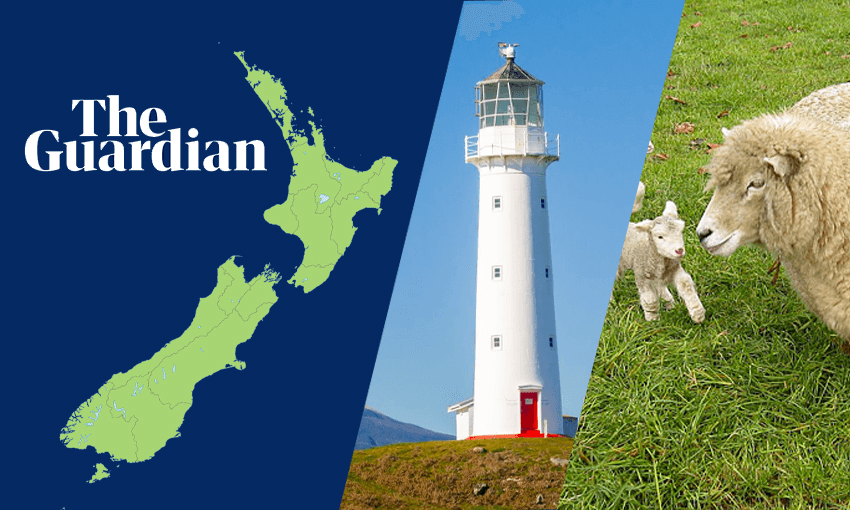Its first full-time reporter will lead the project, which includes a dedicated section of its homepage for New Zealand.
The Guardian Australia is leading a significant move into New Zealand, confirming that it has hired its first full-time reporter in New Zealand and is introducing a new variation on the homepage specifically served to New Zealanders. In response to enquiries from The Spinoff, a Guardian spokesperson confirmed the move, saying “we are going to increase the number of stories that we do – that means more news, commentary and features on the subjects we already know New Zealanders care about.”
Prior to now, its New Zealand coverage has predominantly been handled by Eleanor Ainge-Roy, a freelance journalist based in Dunedin. The Spinoff understands she has now been made a full-time employee of the Guardian. Additionally, Charlotte Graham-McLay, who has been covering New Zealand for the New York Times, has updated her Twitter bio to read “New Zealand reporter @guardian”.
Already, stories with strong New Zealand links carry a targeted call-to-action: “We are expanding our coverage of New Zealand. Please help us by supporting our independent journalism”, reads a note above New Zealand themed stories.
While the move is characterised by the Guardian as “a gentle increase”, the spokesperson noted that “if readers respond positively, we hope to do more.”
The Guardian is owned by the Scott Trust, a not-for-profit set up to oversee its operations, and has become one of the most viewed global news sites. While many international news organisations have erected paywalls in recent years, the Guardian’s signature success has been its reader revenue model, providing extra services in return for monthly donations.
When asked about the move, media commentator and former editor of the New Zealand Herald Gavin Ellis described it as “beneficial” for consumers, while sounding a warning about the potential for it to further impact what is already a severely strained New Zealand media market. He called it a “two-edged sword”, and characterised his concerns as relating to its impact on local journalism, should New Zealanders contribute to the Guardian over the reader revenue programmes of local organisations.
“With the best of intentions, the Guardian is not going to be covering local issues,” he said. “Its focus will be national stories, and thus the ability of our news media to reflect New Zealand to itself is diminished.”
A recent Horizon survey revealed that just 8% of New Zealand adults said they were prepared to pay for online news, and Ellis feared the strength of the Guardian brand might move some audiences to prioritise it over the likes of the Herald’s paywall.
“There’s something about New Zealanders that place higher value on overseas news organisations’ work,” said Ellis. “The allure of the Guardian name could induce younger audiences to move to that platform at the expense of other ones.”
The Guardian spokesperson stressed that this was a “small section”, amounting essentially to a box on the site’s international homepage when accessed from New Zealand and that it would not resemble the site’s landing page in Australia. A private philanthropist funded its arrival in Australia, though it has since become a strong player in the Australian digital news market with significant Australian revenues through readers and advertising sales.
The New Zealand presence will be staged much more slowly. “If you read the Guardian in New Zealand currently you are likely to be getting the international edition of our website,” the spokesperson said. “From next week when you land on the international edition in New Zealand you should see a small section showcasing some of our new stories from inside the country as well as stories from around the world that affect New Zealanders.”
The Guardian has become renowned for strident coverage of issues like climate change, operating from a traditionally left-liberal perspective in its outlook. After committing to a free model, it opened its reader revenue programme in 2014. After many years in the red, the Guardian revealed it was breaking even in 2019. This time last year its editor, Katharine Viner, said the company had more than a million financial contributors, and in May it registered over 650,000 regular supporters.
The New Zealand section will launch early next week.

